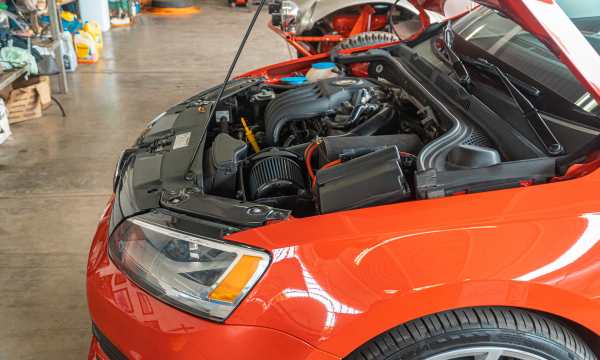Car Battery Maintenance Tips to Avoid Breakdowns
Maintaining your car battery is an important part of car maintenance, but you may forget to do it before your car breaks down.
Proper maintenance of your battery will not only ensure that your car starts every time but will also last longer, saving you time, money and hassle in the long run. This complete guide provides important tips for maintaining your car’s battery so you can avoid sudden breakdowns and keep your car running smoothly.
Know Your Battery:
To properly care for your car’s battery, you first need to understand what type of battery it uses and what it needs. Most new cars come with maintenance-free batteries, which eliminates the need to regularly top up the batteries. But even batteries that require no maintenance should be inspected regularly to ensure they are functioning properly.
Perform Regular Inspections and Cleaning:
A simple eye inspection can solve many problems with your battery. Check the battery regularly for signs of damage, leakage or rust. Corrosion usually appears in the form of white or green material on the terminals, making it difficult for electricity to flow. Use a wire brush to remove corrosion and clean the connection with a mixture of baking soda and water. Make sure the battery box is clean and dry to prevent sparks.
Keep Connections Tight:
If the battery connection is too loose, the power source may not connect properly, causing starting problems. Make sure the battery connections are tight and secure. If you notice any connections are loose, use a wrench to fix them. But be careful not to overtighten them, as this can damage the connections.
Check the Battery:
It is important to keep your battery fully charged for performance and longevity. Draining your battery too often will significantly shorten its lifespan. Use a tester to check the battery charge. A fully charged battery should read at least 12.6 volts. If you often take short trips where the battery does not have a chance to fully charge, you may need to use a battery charger regularly to maintain the charge at the correct level.
Don’t take Short Trips:
When you drive your car short distances, the alternator does not have enough time to fully charge the battery after the energy-intensive starting process. If you can, break up short rides into longer rides so the batteries have a chance to recharge. If your car is often used for short trips or stands still for long periods of time, you can use a battery charger.
Pay Attention to Your Safety:
Make sure the battery is securely seated in the tray. While driving, the battery may become disconnected, possibly causing a short circuit or damaging the battery and its connections. To keep the battery securely in place, check the mounting bracket regularly and tighten it if necessary.
Keep Batteries Away from Extremely High or Low Temperatures:
Extreme temperatures, both hot and cold, can seriously damage battery performance and life. If you live in a warm area, you may want to protect it from the heat with a battery bag or thermal blanket. When you park your car in the garage in the winter, the battery remains at a more stable temperature, making it easier to start the battery from cold.
Replace When Necessary:
No matter how well your battery is maintained, it will lose power over time. Most car batteries last three to five years, depending on frequency of use and conditions. If your battery starts to fail, for example when the engine starts slowly or the headlights dim while the car is stationary, you should replace the battery immediately. Many auto parts stores will test your battery for free so you can determine if it’s time to buy a new one.
Be Smart with Your Electronics:
Don’t overuse your car’s gadgets, such as the radio, lights or charging port, when the engine is off. Using these add-ons while the engine is not running can quickly drain the battery. Always ensure that all tools are turned off before leaving the vehicle to avoid accidentally draining the battery.
Conclusion:
Car battery maintenance does not require any special skills or tools, but you do need to be careful to prevent problems from arising. By understanding the needs of your battery, inspecting and cleaning it regularly, ensuring it is fully charged, and taking steps to protect it from harsh conditions, you can extend the life of your battery and avoid the hassle of prevent sudden damage. Remember, a little care can keep your car reliable and ready to go when you need it.
FAQs:
1. How often should I check my car battery for signs of rust or wear?
Check your car battery at least twice a year to see if there are any signs of damage, wear or rust. If you live somewhere with extreme weather, you should perform this inspection more often, as both hot and cold temperatures can accelerate battery wear.
2. Can I clean up the peace myself? If so, how should you do this?
Yes, you can remove rust from your battery yourself with water and baking soda. Disconnect the battery connections, apply the solution to the corroded area, then gently scrub away the corrosion with a wire brush. Rinse with clean water and allow to dry completely before reassembling the connections.
3. What is the optimal charge level for a car battery? How to decide?
When the engine is off and fully charged, the car battery should have a minimum of 12.6 volts. A voltmeter can be used to check the energy level. If the voltage is lower than 12.4 volts, you may need to charge the battery or check to see if there is a problem.
4. How harmful are short journeys for my car’s battery? What can I do to improve it?
Because the short drive does not give the alternator enough time to restore the power needed to start the car, the battery does not fully charge. To mitigate this effect, minimize short trips, or if you sometimes only use your car for short trips, use a battery charger to keep your battery fully charged.
5. How often should I get a new charger for my car?
Most car batteries need to be replaced every three to five years, but this can change depending on where you live, the type of car you own and how you use it. If your engine is slow to start, the battery warning light comes on, your headlights dim while the car is moving, or your battery won’t hold a charge, it may be time for a new battery. Once your battery is three years old, it is wise to check it annually.
 Car Maintenance Tips
Car Maintenance Tips
Discover essential car maintenance tips to keep your vehicle running smoothly and efficiently. 1. Introduction Regular car […]
More Seasonal Car Maintenance Tips for Year-Round Performance
Seasonal Car Maintenance Tips for Year-Round Performance
Maintaining your car is important to ensure that it lasts as long as possible, remains safe and […]
More Top 5 Essential Car Maintenance Tasks Every Beginner Should Know
Top 5 Essential Car Maintenance Tasks Every Beginner Should Know
For beginners, it can be difficult to find your way around the field of car repair. That […]
More